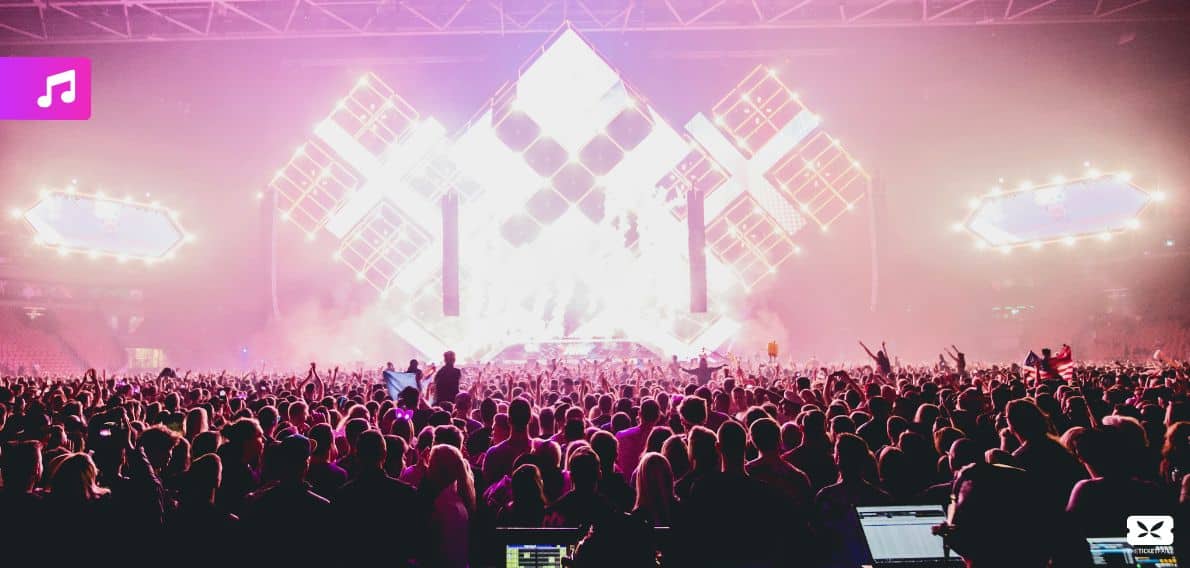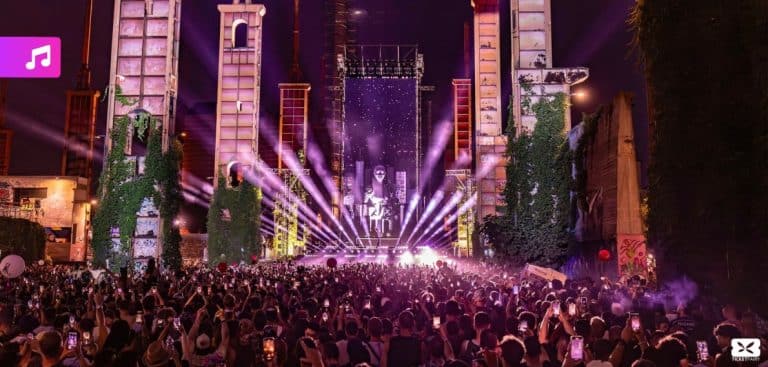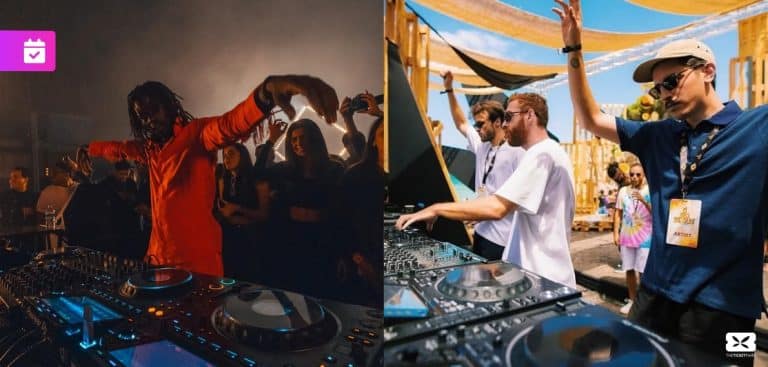Music festivals have long been a playground for live music enthusiasts and revelers to party, have fun, groove to the finest music, and watch their favorite artists perform live. Festivals across the world have seen hundreds of thousands of people flock to different locations, sometimes even staying on-site to celebrate music and art, but this practice is slowly seeing a decline.
Unfortunately, you may be familiar with the number of headlines on news outlets announcing the cancellations or last editions of music festivals. Although live music gigs, concerts, tours, and music festivals are no longer on hold due to the outbreak of COVID-19, why are music festivals getting canceled? In this article, we look at some of the reasons why your favorite music festivals have bid farewell.
Which Music Festivals Have Been Cancelled?
The list of music festivals that have been canceled is long; more than 50 music festivals have been canceled across the world so far. Germany’s MELT Festival, Shindig Festival, Sideways Festival, and Field Maneuvers (in its current form) are just some of the music festivals that will be returning in 2024 for its final edition. Meanwhile, several other renowned festivals have announced that they will be canceled in 2024. The likes of NASS Festival, Splendour in the Grass, Riverside Festival Glasgow, Lollapalooza Paris, WE ARE FSTVL, Groovin the Moo, and Firefly Music Festival will not be opening its doors to live music aficionados this year.
The Reasons For Cancellation of Music Festivals
There is no single reason that has affected live music and music festivals; a multitude of factors come together to put a halt to music festivals that we admire and love. Festivals have cited several reasons, including financial issues, slow ticket sales, safety concerns, and more, while also factoring in soaring ticket prices, artist payments, inflation, extreme weather, and production costs.
The cost of living crisis is highlighted as prices go up and going to a music festival becomes a luxury. While attending a music festival, festival goers not only have to pay ticket prices, which have increased over the years, but also keep in mind the money required for transport, accommodation, and food.
As the live music business came to a standstill during the pandemic, artists, vendors, and industry workers lost a lot of money, causing their fees to shoot up afterward once the restrictions were lifted. Payments to hundreds of employees putting together a festival as well as for artists topping the bill yield a gargantuan cost when combined, while ticket sales are slow. The competition has also increased as there is an oversaturation in the music festival scene with too many festivals to choose from. On the other hand, tours and concerts of artists like Taylor Swift, Fred Again, and Beyoncé have been superhit!
People are very specific about who they want to see live. “Gone are the days when people read from top to bottom of a lineup,” an Australian festival promoter told The Guardian. “In media and on socials, it’s really the top artists driving most of the heat. If fans are asking why a festival didn’t book a certain artist, it’s not because they somehow didn’t think of them. If the artist makes sense stylistically, there’s no way they haven’t had an offer out at some stage,” he added. Following the cancellation of the Australian music festival Groovin the Moo, the promoter said: “The Groovin The Moo lineup wasn’t bad, but with Billie Eilish on top it would’ve been a totally different story.”
Festivals like WE ARE FSTVL have stated that the show can’t go on due to extreme weather events, as the latest edition of the festival couldn’t be staged because of safety concerns. The festival site had received more than average rainfall and had to be canceled.
According to the AIF (Association of Independent Festivals), up to 43 festivals have been postponed, met with cancellation, or bid farewell in 2024 in the UK, with the latest being the Towersey festival. “We have now lost two festivals for every week of this year,” they said via a post on Instagram. Many are calling for cutting down the VAT on tickets from 20% to 5% for a few years.
“Yesterday @eldoradofestival announced it was cancelling, making it the 40th festival that we’re aware of that has cancelled, postponed or is coming to an end this year. It doesn’t have to be that way. Many of these festivals would still be going ahead if VAT on tickets was temporarily reduced down from 20% to 5% for the next three years to help these independents get through this pressure of unpredicatable rising supply chain costs and a post-Covid, post-Brexit credit crunch. You can help – join our Five Percent For Festivals Campaign (link in bio) and write to your local MP. It will make a difference. Share the assets; Tag us, email us, let us know how you get on,” the AIF shared on Instagram on May 22.
Smaller festivals are just as important as the more popular music festivals. These festivals and grassroots venues help foster and spotlight new talents who can display their skills before an audience. “It’s inevitable and it’s already started, but when you start to lose smaller festivals, events, gig spaces and venues, the opportunities disappear for new and emerging talent to get on stage and get their music heard. They’ll suffer and that will inevitably have a knock-on effect further up the chain,” Barn On The Farm co-manager Oscar Matthews said while speaking to NME.
He continued: “You’re very rarely going to have a new up and coming artist go straight to headlining Reading & Leeds. They’re going to start in the smaller grassroots venues and festivals. The talent is there, but festivals need to be given the support to survive or the talent won’t have the opportunities that they need.”
Scheduled to make a comeback in 2024, the UK Festival Barn on the Farm has been canceled. Speaking about the festival, Matthews explained: “Barn On The Farm was an amazing festival with a great reputation that’s always done well for 12 years. It’s had 12 years where – not due to the audience interest or organisers’ great curation – it’s had to call it off due to financial pressures.”
“Barn On The Farm was Ed Sheeran’s first good-sized festival headline appearance when he played to 5,000 people. That’s how artists develop. You don’t arrive as a Reading headliner – you need to develop your catalogue, your performance and your set. That comes through these opportunities,” he added.
You May Also Like:
Greenest Music Festivals in the World
6 Ways to Support Your Local Music Artist
5 Unique Locations That Host Music Festivals



